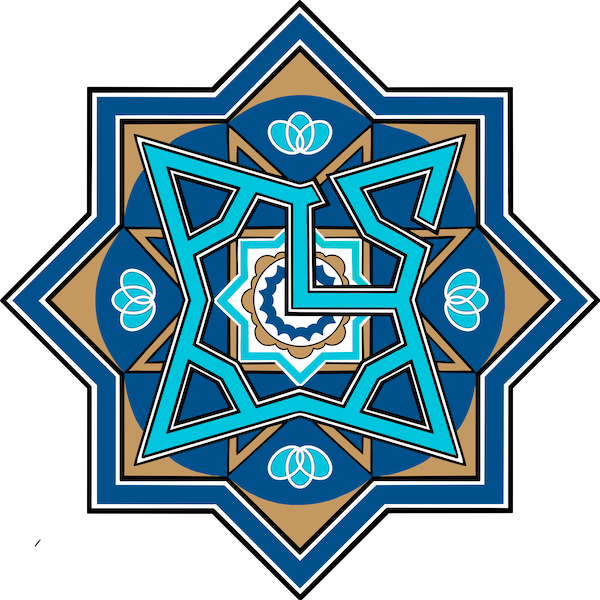Transcultural Identity Constructions in a Changing Arab World
Edited volume by Eid Mohamed and Ayman El-Desouky
Introduction:
The idea of this edited volume starts from the recent social movements and demographic reconfigurations that have swept over the Arab World. The urgent social, political and economic realities which have unsettled the certainties of state formations and processes of subjectivation have also strongly revealed how identity is and always has been unstable and mutable So too are the constructs of ethnicity, religion, politics and power, race and color, nationality, gender, culture, language, and socio-economic status.
Identity in today’s world is especially affected by human migration, although migration is not a particularly new phenomenon. Gore Vidal once remarked during a radio interview—somewhat blithely dismissing concerns for some people being overrun and displaced by others—that all of human history can been seen as little more than the story of great waves of human migration, with displacement and marginalization of identity inevitable. Globalization, however, is intensifying the speed, volume, and diversity of the migrations. (Migration, incidentally, is a type of globalizationhow so? Good to be specific.) With this intensification, questions of identity have reemerged as cross-alliances that traverse traditional borders, geographic, national or communal. In many instances (e.g., where race or religion or ethnicity intersect with politics or power or nationality and citizenship), such crossings have also emerged as provocative or contentious as the older constructs of identity. Specificities of race and language and religion and culture will still matter. In fact, the relocation of large numbers of people at an unprecedented pace, and to environs remarkably dissimilar to those that they leave behind, may reinforce these specificities as coping or even survival devices. Whether this means that differences will be peaceably and constructively negotiated and accommodated within larger as opposed to smaller organizing or structuring entities, and not lead to fissures and fault lines and fragmentation that are even more destabilizing and destructive than those that currently exist (if in fact the latter cannot be eliminated altogether), remains to be seen.
Objective:
This edited book will offer a collection of fresh and critical essays that identify and examine how new media, film and theatre, as well as literary and artistic forms of expression inform and echo currents of transformation in the Arab world. Moreover, how do such forms theorize “transcultural identity” (beyond the transnational) as a form of citizen engagement at the center of transformation politics in the Arab world? The focus of the volume will be the on the articulation of fresh critical perspectives with which to investigate these forms of cultural productions as new modes of knowing that shed light on the nature of social movements with the aim of expanding the critical reach of the disciplinary methods of political discourse and social theory. The volume will seek to articulate systemically the ways in which the Arab scene can contribute to the understanding of the rise of new social movements worldwide by exploring the methodological gaps in the dominant Western discourse and theories. Such methodological gaps became very clear in the failure to understand the irreducible heterogeneity of the crowds and social movements and the subsequent transformations in the public sphere and in the modes of social mobilization.
Preparatory Workshop in Doha
This volume is one of the deliverables of a QNRF NPRP research project led by Dr. Eid Mohamed. The project is titled, “Transcultural Identities: Solidaristic Action and Contemporary Arab Social Movements” and is awarded a QNRF NPRP 2015. Through the QNRF NPRP grant, we aim to invite a number of eminent international scholars, Qatar and Gulf based academics, and Doha Institute graduate students to participate in a preparatory workshop. The workshop is planned for live webcast on-line and we hope our partners in the USA, Europe and the Arab world will transmit the conference in their facilities so their graduate students and faculty members can also participate virtually. The workshop is envisioned to take place in the second week of January 2017.
We do not envisions this to be a one-time event, but an opportunity to initiate strong dialogues between Arab and Western academic discourses on the Arab Spring and its challenges. In addition to knowledge sharing, the workshop will:
* provide an opportunity to discuss the material and assist the editors in synthesizing the individual chapters.
* provide an opportunity to ensure that the editors receive the feedback they need from contributors to produce a coherent, integrated, and polished edited collection.
* Provide an opportunity to receive valuable feedback and suggestions from academics and graduate students who will serve as discussants and workshop participants.
Recommended Thematics:
The scope of this volume includes but is not limited to the following thematics:
• Transcultural identity/identities in the Arab World
• Arab Spring Transcultural revolutionary spirit
• Re-narrating the Arab Spring in a postcolonial space
• Gender and transculturality in a Changing Arab World
• Translingualism and transculturality in a Changing Arab World
• The post-Arab Spring Arab Globalization and Post-postcolonialism
• Migration and shifting national identities in the Gulf Region
• Local vs. global? National vs. cosmopolitan?
• Narratives of transnational identities in a Changing Arab World
Submission Procedure:
Abstract submissions can be submitted to Dr. Eid Mahomed at eid.mohamed@dohainstitute.edu.qa no later than September 15, 2016. All abstracts are limited to 250 words and must include an APA style cover-page.
Important Dates:
The following timeline is anticipated:
Abstract Submission Deadline: September 15, 2016
Proposal Selection Notification: October 30, 2016
Initial Chapter Submission Deadline: December 15, 2017
Book Workshop in Doha, Qatar: January 15, 2017 Final Chapter Submission Deadline: March 15, 2017
Review Results to Chapter Authors: April 15, 2016
Revised Chapter Submission: May 30, 2016
School of Social Sciences and Humanities
Doha Institute for Graduate Studies
Office (+974) 40356917
Email: eid.mohamed@dohainstitute.edu.qa
